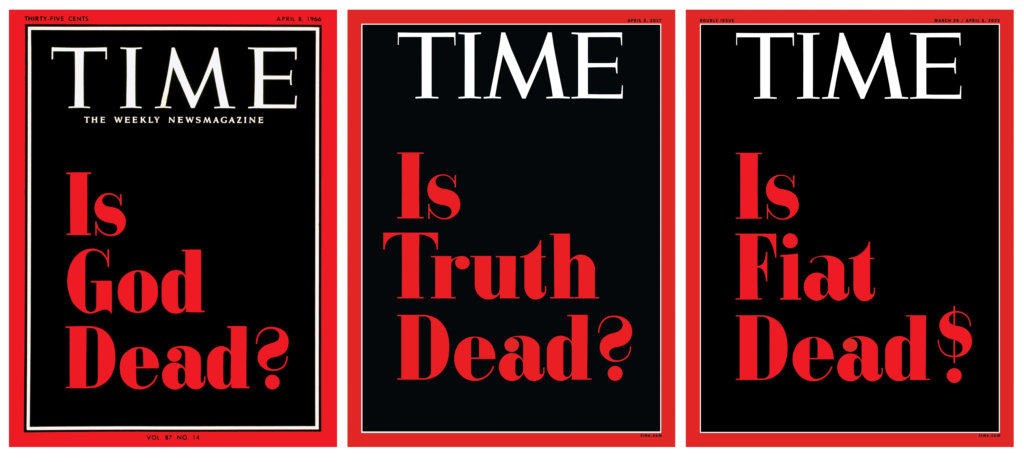Non-Fungible Tokens (NFTs), distinct digital assets with blockchain-secured provable ownership and rarity, are revolutionizing the digital environment. NFTs are becoming more and more well-known, despite first being well-known for their headline-grabbing digital art transactions. These areas include real estate, media, and brand marketing.
These days, businesses from a wide range of industries—including prestigious fashion labels, well-known international media outlets, massive automakers, and widely recognized food chains—are all dabbling in the NFT space. Their endeavors demonstrate the wide range of applications for this breakthrough, ranging from the issuance of rare virtual items to the linking of digital tokens to tangible transactions.
NFT’s Allure for Major Brands
Because of its intrinsic qualities—authenticity, exclusivity, and irrefutable proof of ownership—NFTs revolutionize digital proprietorship and offer profitable chances for creative brand initiatives. To understand why so many major companies are entering the NFT space, it is essential to comprehend these special qualities.
Innovative Marketing
NFTs provide a novel way for firms to stand out in a congested marketing arena. Brands can create a lot of buzz and interact with their consumers in a way that wasn’t previously feasible by making distinctive, valuable digital objects. Customers that purchase a unique piece of the business’s history or artwork instead of merely a product are able to engage emotionally with the brand thanks to this marketing strategy.
Enhanced Customer Engagement
NFTs offer a fresh way to communicate with customers. Brands may create a more engaged and devoted client base by using NFTs to provide their consumers with exclusive material, experiences, or benefits. By being exclusive and engaging, the brand and customer develop a stronger bond that forges a community of brand aficionados who are intimately linked to the company.
New Revenue Opportunities
Nonfungible tokens (NFTs) create new revenue sources in addition to the initial sale of products or services. Brands may profit from ongoing trade by receiving royalties on NFT secondary sales. Additionally, marketers may access a consumer base willing to pay higher amounts for unique digital content by entering the digital products industry.
Big companies find NFTs appealing because of the way their distinctive qualities combine with tactical uses. By embracing NFTs, businesses are stepping into a future where digital engagement, commerce, and collecting culture will all come together to create new opportunities, rather than merely following a fad. By identifying and utilizing these digital tokens, businesses can increase consumer loyalty, set themselves apart in a crowded market, and open up new income streams—all of which will pave the way for the next big digital revolution in branding.
Case Studies of Brands That Use NFTs
Prominent businesses from a variety of industries are experimenting with NFTs, which highlights the wide range of uses for this technology. Here are some concrete examples of how some well-known businesses have included NFTs into their marketing plans, business plans, and consumer engagement programs.
Coca-Cola

In honor of International Friendship Day, Coca-Cola launched commemorative digital collectibles in partnership with Tafi, embracing the NFT trend. These NFTs highlight the company’s dedication to social responsibility and innovation. They are accessible on the Polygon blockchain, and the revenues go toward supporting charitable organizations like the Special Olympics. This program demonstrates how companies may use NFTs to benefit society and interact with their audience in fresh, significant ways.
Visa

Via its Visa Creator Program, Visa has entered the NFT market. Through the use of NFTs as a platform for job monetization, this program seeks to incorporate artists, designers, and other creative workers into the digital economy. Visa is an example of the potential for NFTs to democratize economic involvement and innovation by assisting small firms and individual producers.
Lamborghini

Through its “Epic Road Trip” initiative, Lamborghini made a splash in the NFT market by partnering with NFT PRO and INVNT.ATOM to sell digital collectibles. This calculated approach broadens the brand’s sales reach by connecting with a new population of internet aficionados and collectors and promoting its unique luxury character.
Nike

Nike introduced a novel fusion of design and digital ownership with their CryptoKicks Dunk Genesis. By allowing customers to customize their digital shoes, these NFTs highlight user involvement and a cutting-edge method of brand communication. This creative method heralds a new era in which collectibles, digital art, and fashion all come together.
Prada

By providing free NFTs when actual things from their collection are purchased, Prada has adopted a novel strategy. By doing this, Prada is creating a unique luxury shopping experience that unites the virtual and real worlds, increasing the exclusivity and value of owning their items.
TIME Magazine

By creating a community around digital treasures and producing exclusive NFTs, TIME Magazine had a big influence on the digital art market. Since its launch, TIME has engaged thousands of collectors and more than 150 artists, demonstrating the ability of NFTs to promote creativity and build communities.
Air Europa

In a ground-breaking move, Air Europa and TravelX and Algorand unveiled the first travel ticket series in history to be based on NFT. This creative method has revolutionized the travel industry and demonstrated how NFTs can transform ticketing and customer interaction.
Associated Press
When the Associated Press pulled a planned NFT containing images of refugees in response to public outcry, it raised important ethical questions. This case emphasizes how important it is to take sensitivity and ethical bounds into account while using NFTs, particularly in fields like journalism.
Citroën

Citroën entered the metaverse in an exciting partnership with Riot Racers, enabling players to purchase licensed Citroën NFT vehicles for their collections. Through this effort, Citroën connects with a new generation of consumers while also improving the gaming experience and immersing the brand into a dynamic digital environment.
Dolce & Gabbana

Dolce & Gabbana auctioned off a hybrid virtual/physical collection, setting a record-breaking $6 million in the fashion NFT market and stretching the limits of high-end fashion. Their project, #DGFamily, which was developed in collaboration with UNXD, is a prime example of a creative strategy for fostering brand engagement and communities in the digital era.
Chicago Bulls

The Chicago Bulls’ Legacy Collection, which honors their six World Championship rings, enthralled collectors and sports enthusiasts alike. This tactic showed how to cleverly employ NFTs to celebrate sports history, give unique experiences, and offer special collectibles—all of which increase fan loyalty and engagement.
Forbes
Forbes unveiled a playful idea with its Virtual NFT Billionaire, a figure with a sizable made-up portfolio. This artistic endeavor demonstrates the possibilities of fusing digital art, money, and narrative, providing viewers with a fresh approach to wealth and investing concepts.
CNN
The news conglomerate CNN created a new channel for news consumption and collector involvement with “Vault by CNN,” which archived important events in modern history as digital art. The collection, albeit being inactive, still serves as evidence of the possible fusion of digital collectibles with journalism.
Burger King

Using Sweet’s platform, Burger King’s “Keep It Real Meals” NFT campaign combined in-person sales with digital rewards, turning it into a marketing triumph. This tactic improved the user experience by capitalizing on the excitement of collectors and the widespread attractiveness of unique digital assets.
Mango
Mango pioneered the fusion of digital technology and fashion retail by creating a wearable NFT that authenticated event attendance. This approach, which provided a distinctive virtual contact with the company, represented a progressive step in consumer involvement.
Meta
Social networking giant Meta started testing Ethereum and Polygon-based tokens among a restricted group of authors after investigating NFTs. This program demonstrates the company’s dedication to keeping up with emerging digital trends, supporting the monetization of creators, and incorporating contemporary digital assets into social media communication.
Gucci

Gucci started a metaverse trip in partnership with 10KTF, building a virtual world with unique digital fashion items. The campaign, which stars Wagmi-San, combines internet culture with high fashion, showcasing Gucci’s creative approach to brand growth.
McLaren

McLaren created an exclusive online community with MSO LAB that provides possibilities and NFTs that are not found elsewhere. This strategy shows how high-end automakers can maintain their exclusivity online while giving brand aficionados a new place to interact and feel like they belong.
Pepsi

Via the Pepsi Mic Drop, an NFT initiative that offers digital artifacts, Pepsi established a connection with music enthusiasts. This project is a reflection of Pepsi’s commitment to using Web3 technology to create meaningful cultural connections by providing a platform that is innovative and inclusive.
Pinkfong

Pinkfong showcased a generative art collection of NFTs that combined pop culture with digital artwork, capitalizing on the “Baby Shark” sensation. This approach demonstrates how entertainment businesses may develop fresh, interesting content formats.
Red Bull

A special NFT from Red Bull was connected to a real Esports gaming rig that was in operation during a Monaco race weekend. This new method of providing value to customers is demonstrated by the holistic approach to NFTs, which links digital assets to tangible experiences.
Golden State Warriors
The Golden State Warriors unveiled the first responsive NFT collection after coming up with the original idea, and it updated in tandem with the team’s accomplishments. This approach to real-time participation marks a new level of fan connection and sports commercialization.
Mercedes
Mercedes-Benz commemorated the history of vehicle design with a line of NFTs called “The Era of Luxury,” which represented several design eras. This imaginative nod to design highlights the company’s dedication to creativity and pays respect to its past using cutting-edge digital technology.
Lacoste
With “UNDW3,” an NFT effort improving online engagement and updating brand appeal, Lacoste entered the Web3 arena. This tactic reflects Lacoste’s modern approach to brand improvement and represents the company’s adaptive shift towards technology-driven customer involvement.
The many uses and tactics of this emerging field are demonstrated by each brand’s journey into NFTs. These projects, which range from high-end automotive to fast food, luxury fashion to global media, show the enormous potential of NFTs to reinvent market strategies, create new value propositions, and change brand-consumer interactions in the digital age.
NFTs’ Effects on Business Models and Customer Experience
The introduction of NFTs has revolutionized normal business procedures and marked a turning point in a number of sectors by profoundly changing consumer relations.
Transforming Consumer Engagement
NFTs are introducing previously unheard-of levels of client interaction, expanding the scope of standard buy-and-sell dynamics to include more immersive, captivating experiences. They enable personalized interactions and function as digital extensions of a brand’s story. By giving consumers access to unique material, allowing them to acquire rare digital treasures, or enabling them to participate in interactive metaverse events, these digital assets turn people from casual observers into essential members of a brand’s ecosystem.
For instance, companies develop a sense of exclusivity and belonging by transforming commonplace goods into sought-after collectibles, which gives them a distinctive appeal. This strategy is widely used in the gaming industry, as NFTs provide players access to premium features and virtual goods, deepening their immersion in the game. By including consumers as active participants in a brand’s offerings, these tactics foster engagement and customer loyalty.
Verifying Origin and Authenticity
NFTs serve as instruments of confidence and verification and are extremely important in sectors afflicted by copying, particularly premium brands. By securing an item’s uniqueness and ownership history on the blockchain, they offer unquestionable transparency—a vital component for valuable things.
For collectors, this assured authenticity is crucial since it guarantees that the items they have acquired are real and verifiably rare, increasing the asset’s value and attractiveness. Creators also find this technology very helpful in protecting the uniqueness of their work and avoiding illegal replications. NFTs are used by luxury brands to reaffirm their dedication to uniqueness and superior quality.
Finding New Financial Paths
NFTs are opening up creative ways to make money. Companies create a sense of digital scarcity by tokenizing products, services, or content, which may increase demand and value. This is especially significant in the digital art space, where it gives artists a platform for exposure and monetary compensation through decentralized, direct-to-consumer channels.
Additionally, NFTs enable “fractional ownership,” which broadens the customer base by enabling investors to own portions of valuable assets. The potential for original artists to get royalties from secondary sales—a feature that guarantees continuing compensation—is another ground-breaking innovation.
Building Community Bonds
NFTs are more than just financial assets; they are the pillars of the community. Exclusive rights or material access creates a sense of community among holders by fostering devoted fan communities based on shared values and joint ownership.
These communities may enhance a brand’s ecology by providing direct input, promoting the brand, and even contributing content. This element strikes a deep chord in the culture of the present, where there is a noticeable movement towards giving experiences and meaningful connections more importance, pushing businesses to go beyond their conventional functions.
NFTs are more than simply a passing trend; they signify a substantial change in the digital world. They play a key role in developing community-driven settings, guaranteeing product authenticity, inventing new economic models, and revolutionizing how companies engage with their consumers. Incorporating NFTs into marketing plans will be essential for modern businesses looking to stay relevant and competitive in this rapidly changing digital landscape as the digital realm grows.
Challenges and Considerations for Brands Using NFTs
Brands are faced with a maze of obstacles as well as possibilities as the NFT frontier grows. This section explores the complex web of moral conundrums, regulatory obstacles, volatile markets, and environmental concerns that come with implementing NFTs into corporate strategy.
Ethical Implications
Despite being revolutionary, NFTs have brought up a host of ethical issues, particularly for firms who have entered this market unprepared. A number of corporations have experienced significant negative publicity as a result of offensive content or improper use of cultural symbols. These occurrences highlight how important it is for marketers to approach NFTs knowing everything about their target market and the cultural relevance of the products they want to tokenize. The difficulty is striking a balance between innovation and adherence to social standards and values so that campaigns don’t irritate customers or damage a brand’s reputation.
Legal Considerations
Traditional legal frameworks need to be reevaluated because of the ambiguity surrounding the junction of NFTs and intellectual property law. When launching NFTs, brands need to be cautious about copyright issues and make sure that tokenized digital assets don’t violate any already-existing copyrights or trademarks. This calls for a strong intellectual property management plan and a thorough comprehension of the decentralized nature of blockchain technology and how it affects legal enforcement. There is a great chance of getting into legal trouble, and mistakes can result in lawsuits, monetary losses, and harm to one’s image.
Market Speculation and Volatility
Like other cryptocurrency markets, the NFT market is prone to extreme volatility and speculation, making it a hazardous investment that might result in large profits or huge losses for brands. It is crucial for brands to use effective risk management strategies when investing in NFTs because the speculative nature of this market can result in price bubbles reminiscent of the dot-com boom and bust. This involves knowing the financial landscape and acknowledging the erratic nature of consumer interest in digital collectibles.
Environmental Concerns
The environmental effects of blockchain technology, particularly the high energy usage for mining and transactions, are one of the most common accusations leveled at NFTs. This criticism is especially relevant in a time when sustainability and environmental awareness are becoming more and more prevalent. Companies have to balance their responsibilities to corporate social responsibility with digital innovation; this means looking into other options, such green blockchains or carbon offsets, to reduce environmental impact and take advantage of NFT potential.




















